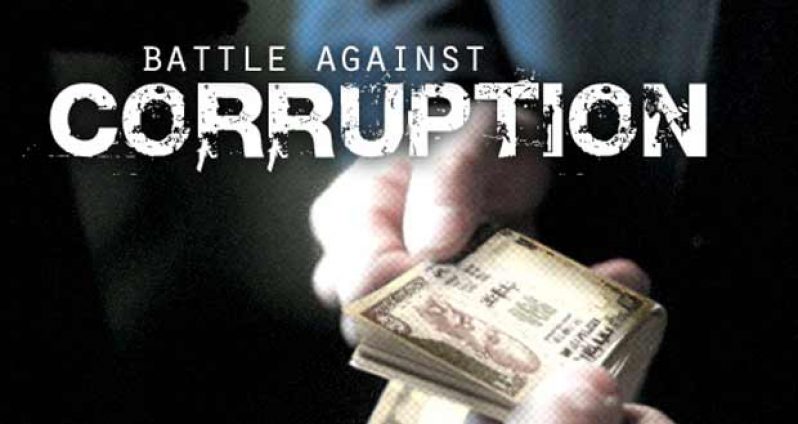CORRUPTION is a crime so egregious that the perpetrators are an affront to all humanity. The world is filled with persons who derive great wealth on the suffering of entire societies. These individuals have grown lavish in their plunders and relaxed in their impunity, sheltering behind institutions and legislation that they have been able to twist to their benefit.Corruption wields its evil head at the helm of all tragedies facing human kind. Poverty, Starvation, Injustice and Inequality, even Slavery; unnatural in every form, are all unnecessary products of a corrupt world.
Corruption undermines the ability of governments to function properly and erodes democracy. Political corruption is the norm in many countries. This manifests in different ways: embezzlement of government funds, procurement, political patronage, money laundering, bribery, invoicing and over estimation of a project and contract, and the sale or misuse of government property. Far too often, the perpetrators of the most outrageous acts of corruption are able to use their illicit wealth and power to pervert the very laws and institutions that should call them to account. As a result, the worst offenders are the least likely to face domestic justice.
Corruption drains resources, thus worsens the provision of basic human needs. Every year, political corruption contributes to the death of as many as 140,000 children worldwide, by depriving them of medical care, food, and water. Within any democratic economy, every year allocations are made to the various sectors such as health, education, agriculture, water, security, etc. This is certain. Politicians use these allocated amounts as an argument for their robust efforts to strengthening each respective sector. However, the question needs to be asked, how much of this sum was syphoned off to corrupt ends? When asked why is the poverty level still high despite these ‘Robust’ investments, the appalling answers such as the famous biblical quote, ‘the poor will always be with us’ does not have to ring true. There are more than enough resources to satisfy the needs of every human being on this planet.
Corruption causes a spiral of conflict and crime. For example, when youths are not engaged in meaningful work, and cannot bear their poverty exacerbated by corrupt practices perpetrated by leaders (who appear to be above the law or the law themselves) anymore, they bring attention to their plight by engaging in destructive behaviour, particularly crime.
Corruption at the highest levels distorts competition so denying the public access to the competitive market place. It induces wrong decisions resulting in wrong policies, wrong prices, wrong contractors, sub-standard delivery to recoup overpricing, promotes corruption at lower levels and eroded public confidence in leaders. Today the act of stealing government funds and handing out some favourites is not legislatively viewed as corrupt or illicit. Not surprisingly then, corruption appears to be more prevalent in countries with weakly integrated accountability mechanisms, where the leadership institutions are irresponsible, and therefore corruption is perpetrated at the highest level.
The first priority for any country must be to tackle corruption. It is a huge problem that exists all over the world. A ‘moral economy of corruption’ exists that preys on the resources belonging to the people of the world. It deprives those who are not within the entrusted circle of beneficiaries and thus suffers billions whilst enriching a few. Therefore according to the definition of a crime against humanity, which states it to be a particularly odious offence that constitutes a serious attack on human dignity or grave humiliation or a degradation of human beings, Corruption qualifies as the number one contender.
By Mario Joseph
Corruption: A crime against humanity
SHARE THIS ARTICLE :
Facebook
Twitter
WhatsApp



.jpg)








